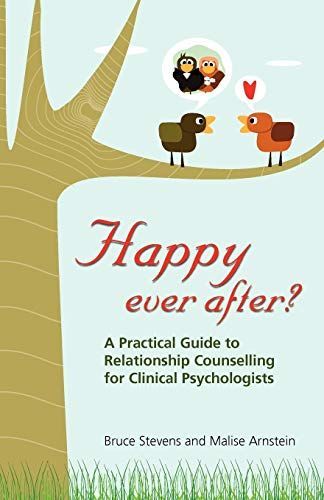
Happy Ever After? A Practical Guide to Relationship Counselling for Clinical Psychologists
Mary has brought Mark, recently returned from war service in Afghanistan, into counselling because of concerns for his gambling and how much it is costing the family. Is his military service playing some role in the increase in his gambling? Kylie has a problem with her anger. Brett is threatening to leave if her aggression is not better contained. Is her irritability that of an untreated depression or perhaps the brooding anger of a borderline personality disorder? Bettina is taking Lithium for bi-polar disorder and has just come out of hospital after a two-week admission related to her anorexia, and there is a need to closely monitor her weight. Natalie, her partner, is feeling highly stressed. She loves Bet, but feels overwhelmed be a responsibility to keep her alive. What support and guidance is best for Bettina? Much relationship counselling today is conducted by generalist psychologists, social workers, and counsellors. Yet there is a strong case for a greater role for clinical psychologists. Accurate assessment during couples therapy is essential, the dynamics between people are complex, and the process is potentially very demanding of clinical skills. This book provides an opportunity to make the argument for greater involvement in relationship counselling by the clinical psychology profession and to guide both clinical students and practitioners toward an informed and integrated approach to relationship counselling, drawing on the best evidence-based treatments.